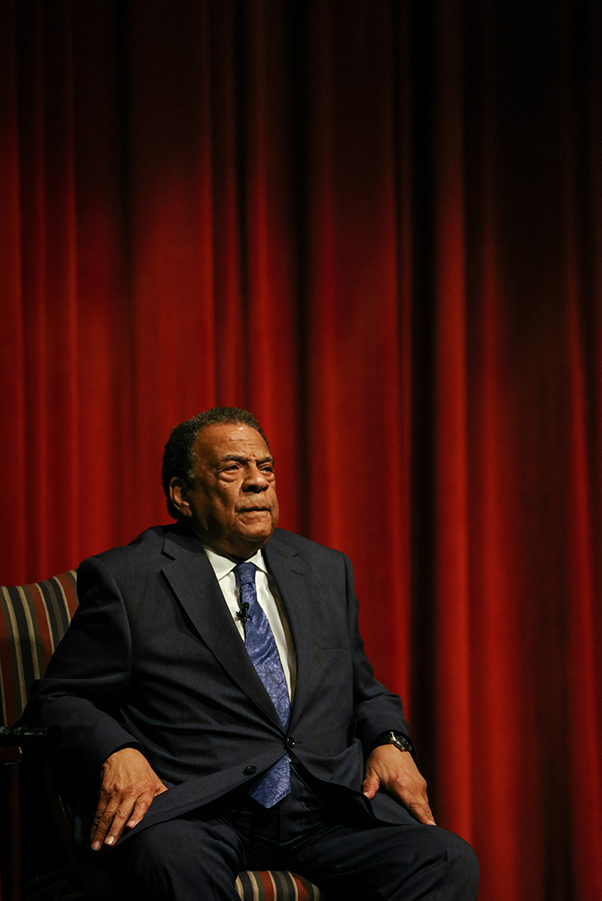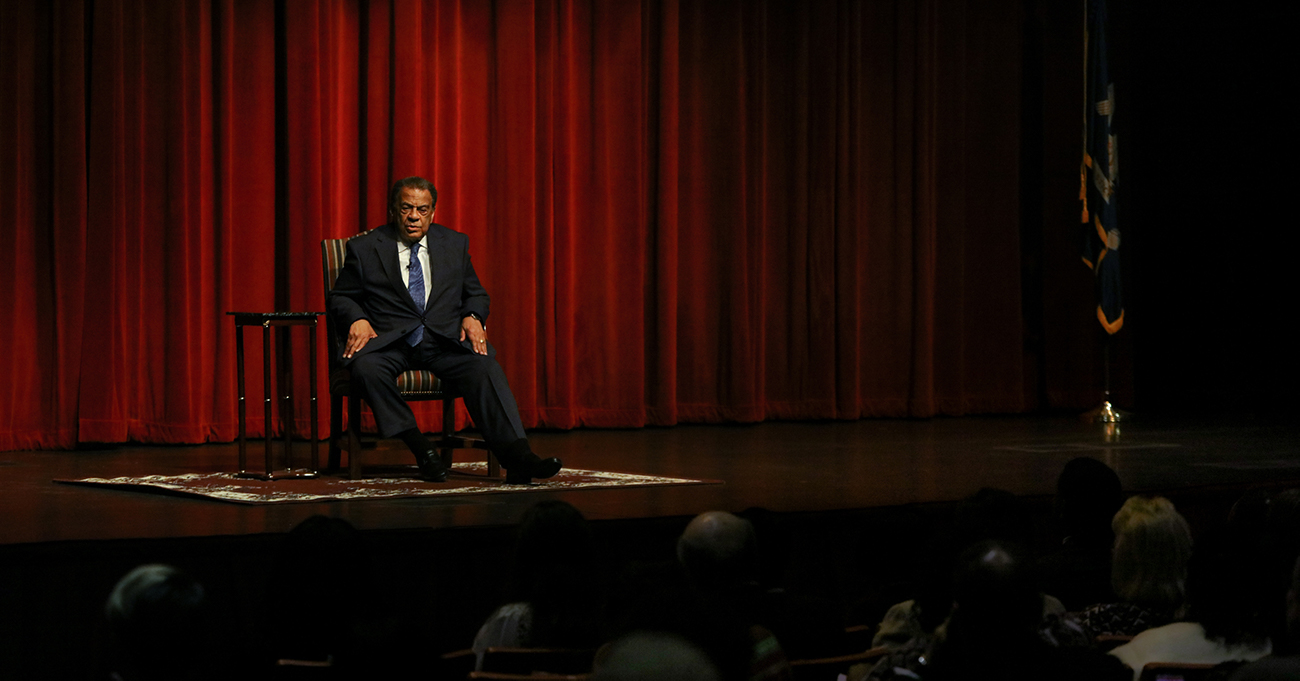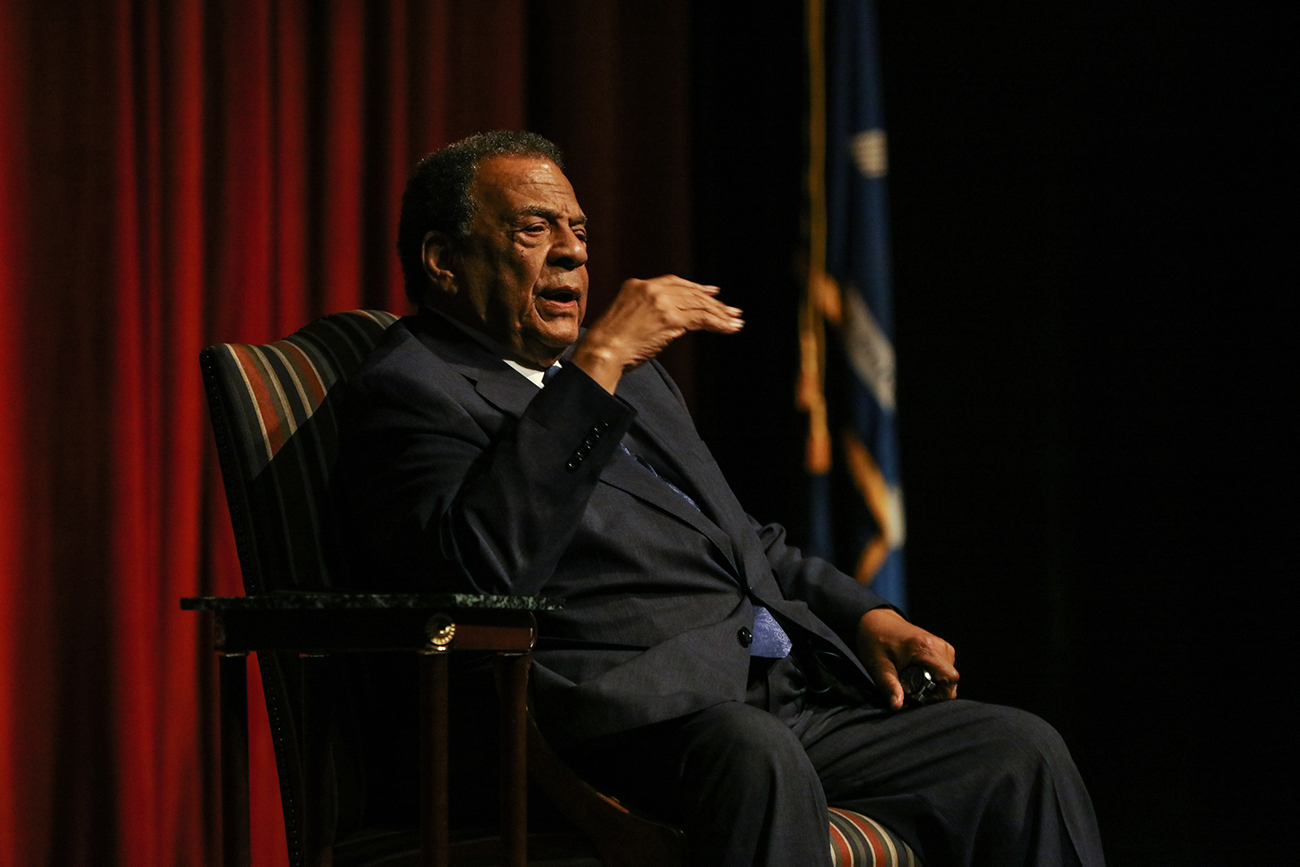

Former U.N. Ambassador, two-term mayor of Atlanta, author, pastor and Civil Rights icon Andrew Young, Jr. spent Tuesday, February 27 on the University of Louisiana Monroe campus. The day began with a special guest lecture and a session with Student Government and Campus Activity Board Members.
Later that evening, Ambassador Young spoke to a crowd in Brown Auditorium. The presentation
opened with Young drawing comparisons between young people getting politically involved
in the wake of the Parkland High School shooting and the Civil Rights movement. Regardless
of the subject discussed, Young remained optimistic for the future.
Young, a pivotal member of the the Southern Christian Leadership Conference (SLCC),
gave a first-hand account of the Birmingham Boycotts of 1963 and the Selma to Montgomery
marches. He provided insight into how the SLCC organized peaceful protests and how
they harnessed the new technology of television news.
Young’s ideology and actions were always derived from his faith in God. It is what
drove him to join the SLCC. Through his speech, he also painted a more human side
of Dr. Martin Luther King, Jr. than one traditionally sees. Young recalled moments
of humor between himself and Dr. King, and that he loved to tell jokes about pastors.

The narrative weaved in and out of many sections and timefames of his life, but the
one common thread throughout his story was one of hope and peace. He also described
his involvement with the global Civil Rights movement as the first African-American
Ambassador to the United Nations.
After a question and answer session lead by SGA President Bryce Bordelon, the evening
concluded full-circle with Ambassador Young leading the crowd in a cappella rendition
of the gospel song “Its gonna be all right” and a standing ovation from the crowd.
About Andrew Young

Born in New Orleans in 1932, Ambassador Young, attended Howard University and earned
his divinity degree from Hartford Seminary. After graduation, he served as pastor
in Beachton, Ga. before joining the Southern Christian Leadership Conference which
coordinated non-violent protests, boycotts, and civil disobedience during the Civil
Rights era.
During the 1960s, Young was a key strategist and negotiator during Civil Rights campaigns
that led to the passage of the Civil Rights Act of 1964 and the Voting Rights Act
of 1965. He was elected to Congress in 1972 until he was appointed as President Jimmy
Carter’s Ambassador to the United Nations in 1977, the first African-American to hold
the post.
Young negotiated an end to white-minority rule in Namibia and Zimbabwe, both in Africa.
He brought Carter's emphasis on human rights to international diplomacy efforts. Young
was the recipient 1979 recipient of the NAACP Spingarn Medal, and he received the
Presidential Medal of Freedom in 1981.
As two-term mayor of Atlanta, Young brought in over 1,100 businesses, over $70 billion
in foreign direct investments and generated over a million jobs. He was also instrumental
in the city’s bid for the 1996 Summer Olympic games.